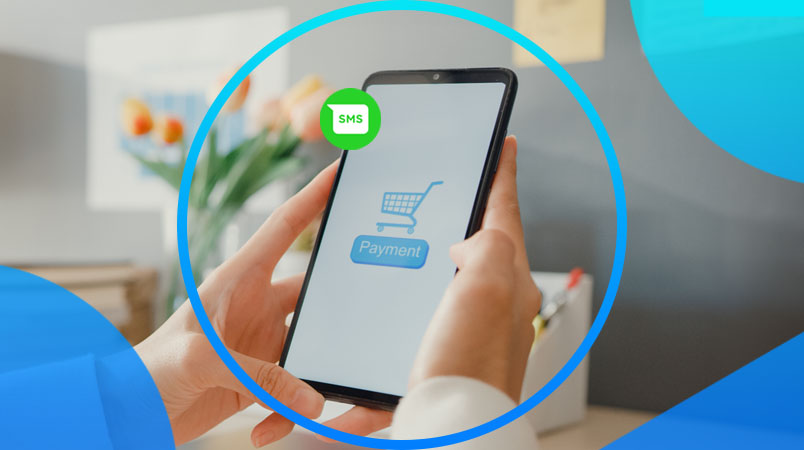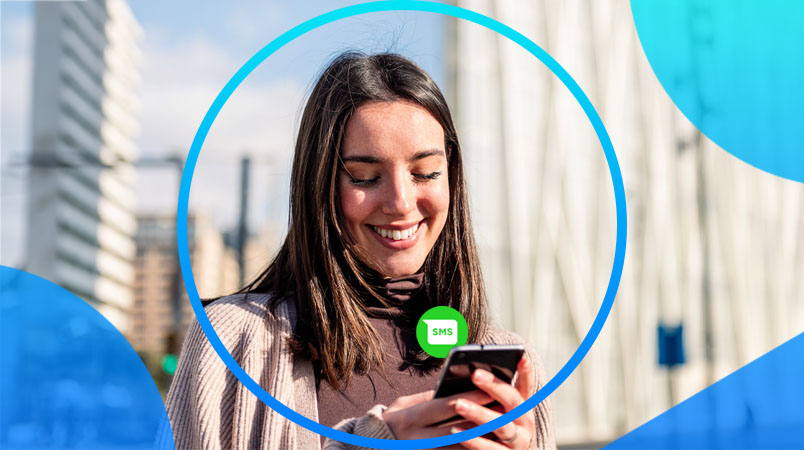What is Promise to Pay?
A ‘Promise to Pay’ or ‘PTP’ agreement is when a customer commits to making payments within a specified timeframe to rectify late payments, therefore entering a Promise to Pay agreement with the business. Often overseen by the business’s credit control team, PTP agreements offer structure to both the customer and the business, providing a clear repayment plan and agreeing upon terms including payment amounts and due dates.
The PTP agreement is commonly documented and agreed upon in writing. This allows credit control teams to be proactive when it comes to late payments and keep collaborative and open communication with the customer.
Why use SMS for Promise to Pay agreements?
SMS is a universal and reliable communication channel, deliverable to every mobile phone worldwide, even without an internet connection. The impact of SMS is also evident in its 9.18% higher click-through rates compared to other digital channels and customers are thirty-five times more likely to read SMS messages than emails.
SMS is also non-intrusive compared to potentially disruptive phone calls and offers convenience to customers who can engage with messages at their own pace. Furthermore, SMS is quick to implement through platforms like CM.com, enabling businesses to efficiently send payment reminders and increase conversion rates.
How to use SMS for Promise to Pay
SMS can be used in two ways for PTP agreements. The first, SMS reminders can be used to encourage customers to enter a PTP agreement for their payments. The second is that SMS can then be used to follow up with customers and share updates on the PTP plan, to highlight upcoming payment dates, for example. Below we’ve shared some SMS examples for PTP agreements.
Message one
Hi [FIRSTNAME], we would like to remind you that payment for [AMOUNT] was due on [DATE]. To avoid any additional costs, please make payment no later than [DATE] via this link [LINK] or bank transfer. Thank you, [COMPANY NAME].
This message should be shared once the original due date has passed.
Message two
Hi [FIRSTNAME], we would like to remind you that payment [AMOUNT] is due on [DATE]. To avoid any additional costs, please make payment via this link [LINK] or bank transfer. Thank you, [COMPANY NAME].
This message should be shared 10 days before the new due date.
Message three
Hi [FIRSTNAME], payment [AMOUNT] that was due on [DATE] has not been paid. To avoid any legal action, pay now via this link [LINK] or bank transfer or select a new payment date [LINK]. Thank you, [COMPANY NAME].
This message should be shared once the new due date has passed.
Message four
Hi [FIRSTNAME], thank you for selecting the new payment date of [DATE]. To avoid any additional costs, pay via this link [PAYMENT LINK] or bank transfer by this date. Thank you, [COMPANY NAME].
This message should be shared once the PTP agreement has been entered.
Message five
Hi [FIRSTNAME], as agreed in the payment agreement we would like to remind you that payment [AMOUNT] is due on [DATE]. To avoid any additional costs or legal action, please make payment via this link [LINK] or bank transfer. Thank you, [COMPANY NAME].
This message should be shared 10 days before the agreed due date.
Message six
Hi [FIRSTNAME], your payment of [AMOUNT] has been processed. If you wish to turn on automated payments click here [LINK]. Thank you, [COMPANY NAME].
This message should be shared once the payment has been processed.
Use SMS for Promise to Pay
By utilising SMS in Promise to Pay arrangements, credit control teams can establish a more efficient and collaborative communication process and increase conversion rates, positively impacting cash flow. This will ultimately boost the overall effectiveness of collecting late payments. If you're interested in integrating SMS for Promise to Pay agreements, get in touch and speak with a member of our team.








